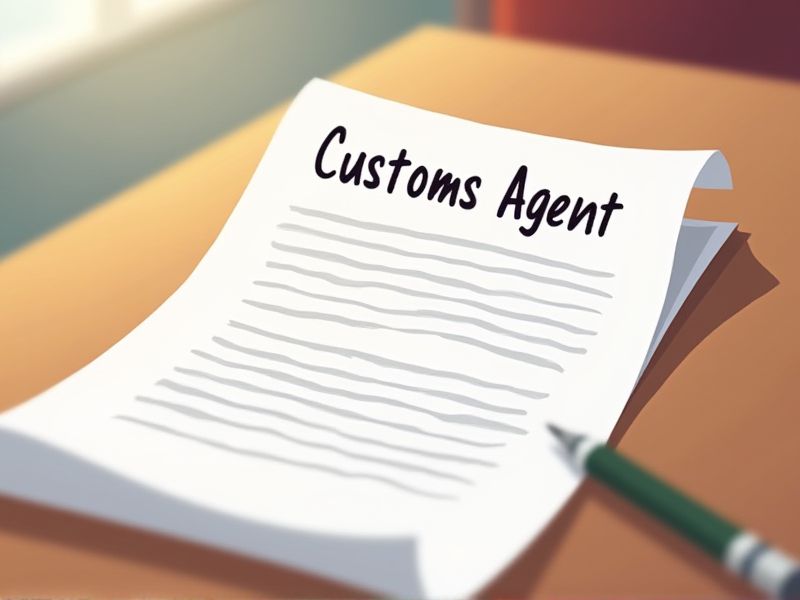
Customs agents play a critical role in ensuring that goods and individuals entering a country comply with its laws and regulations, necessitating a comprehensive understanding of complex international trade rules. Certain certifications equip agents with the necessary skills in areas such as tariff classifications, cargo security, and international law, ensuring they can effectively identify and mitigate risks at the border. By obtaining these certifications, customs agents enhance their credibility, adhere to standard practices, and stay updated on evolving global trade dynamics. Here are some key certifications necessary for a customs agent.
Customs Broker License Certification
The Customs Broker License Certification is essential because it ensures agents possess a comprehensive understanding of regulations and tariff schedules. Without this certification, agents often struggle to efficiently navigate the complexities of international trade laws. Certification increases credibility and trust with clients, fostering smoother business transactions. Being certified minimizes the risk of costly errors or legal penalties during the customs clearance process.
Certified Customs Specialist (CCS)
Certified Customs Specialists (CCS) are crucial for customs agents due to their in-depth knowledge of trade laws and regulations, which helps in minimizing compliance risks. The CCS credential ensures that customs processes are managed efficiently, reducing clearance times for shipments. Their expertise in international trade policies aids in accurate tariff classifications, preventing costly errors or legal issues. By possessing a CCS certification, customs agents are better equipped to handle complex logistics, improving overall supply chain efficiency.
Certified International Trade Professional (CITP)
Customs agents encounter complex international trade regulations and a CITP certification provides them with the knowledge to navigate these effectively. CITPs understand global trade laws which reduces the likelihood of errors that could lead to costly fines or shipment delays. With comprehensive training in trade compliance, CITPs enhance the operation's efficiency by streamlining customs processing. Trustworthiness in international transactions increases as CITPs hold recognized credentials that assure stakeholders of their expertise in handling intricate trade matters.
Certified Export Specialist (CES)
The need for a Certified Export Specialist (CES) arises from the complex and ever-changing regulations governing international trade, which a customs agent must navigate to ensure compliance. CES certification provides customs agents with the critical knowledge to accurately complete necessary documentation, thereby preventing costly delays and penalties. An understanding of export practices gained through CES training enhances a customs agent's ability to identify and mitigate risks associated with international transactions. Businesses benefit from hiring certified specialists as it fosters trust and efficiency, crucial for maintaining competitive advantage in the global market.
Global Trade Professional (GTP) Certification
A Global Trade Professional (GTP) certification benefits customs agents because it enhances their understanding of international trade regulations. This understanding increases their efficiency in managing complex trade transactions, which in turn reduces delays at borders. Certification also boosts credibility, attracting more clients who value expertise in navigating global trade compliance. As trade regulations continue to evolve, a GTP certification ensures agents remain current with the latest changes, minimizing the risk of legal infractions.
Certified Import Specialist (CIS)
Certified Import Specialists bring expertise in navigating complex regulatory frameworks, which leads to reduced risk of legal violations for Customs Agents. They ensure accurate documentation and compliance, thus minimizing shipment delays at points of entry. Their knowledge contributes to cost efficiency, as they prevent unnecessary fines and penalties. The presence of CIS-certified professionals enhances trust with clients and trade partners, facilitating smoother international transactions.
Import/Export Compliance Certification
Import/Export Compliance Certification is needed for Customs Agents to ensure they adhere to international trade laws and regulations, reducing the risk of penalties for businesses. Certification provides agents with detailed knowledge of the classification and valuation of goods, which is critical for accurate documentation and duty assessments. Compliance training helps agents identify and prevent potential security threats by enforcing strict screening procedures and risk management techniques. Certification enhances the agent's ability to facilitate the smooth flow of goods across borders, which is vital for maintaining efficient global supply chains.
Incoterms Certification
Customs agents with Incoterms Certification possess a standardized understanding of international trade terms, reducing the likelihood of costly errors in shipping contracts. This certification ensures agents can efficiently manage and mitigate risks associated with cross-border transactions. A thorough comprehension of Incoterms enhances communication between international parties, streamlining the customs clearance process. Improved accuracy in task execution leads to increased trust and reliability in trade operations.
Foreign Trade Zone (FTZ) Certification
Customs agents need FTZ Certification to expedite the process of moving goods with reduced tariffs and duty deferrals. The certification streamlines regulatory compliance, minimizing the risk of penalties and facilitating smoother operations. It grants agents the ability to manage goods within a special economic zone, which can attract more clients seeking cost-effective trading solutions. By being certified, agents enhance their credibility and competitiveness in a global market, offering more efficient solutions to businesses engaged in international trade.
Certified Global Business Professional (CGBP)
Customs agents need the Certified Global Business Professional (CGBP) credential because it ensures they possess a comprehensive understanding of international trade regulations. This certification enhances their capability to manage complex customs processes efficiently, reducing the risk of operational errors. Holding the CGBP allows customs agents to stay competitive by keeping up with global business practices and trends. Companies may prefer to work with certified professionals, potentially leading to better job prospects for those holding the CGBP credential.
Summary
When you pursue certifications as a Customs Agent, you gain a deeper understanding of regulations and compliance standards. This knowledge can lead to improved efficiency in processing shipments and reducing errors. Enhanced expertise increases your credibility, often resulting in more career advancement opportunities. Employers may also see value in your certification, potentially offering you better job placements and higher salaries.
